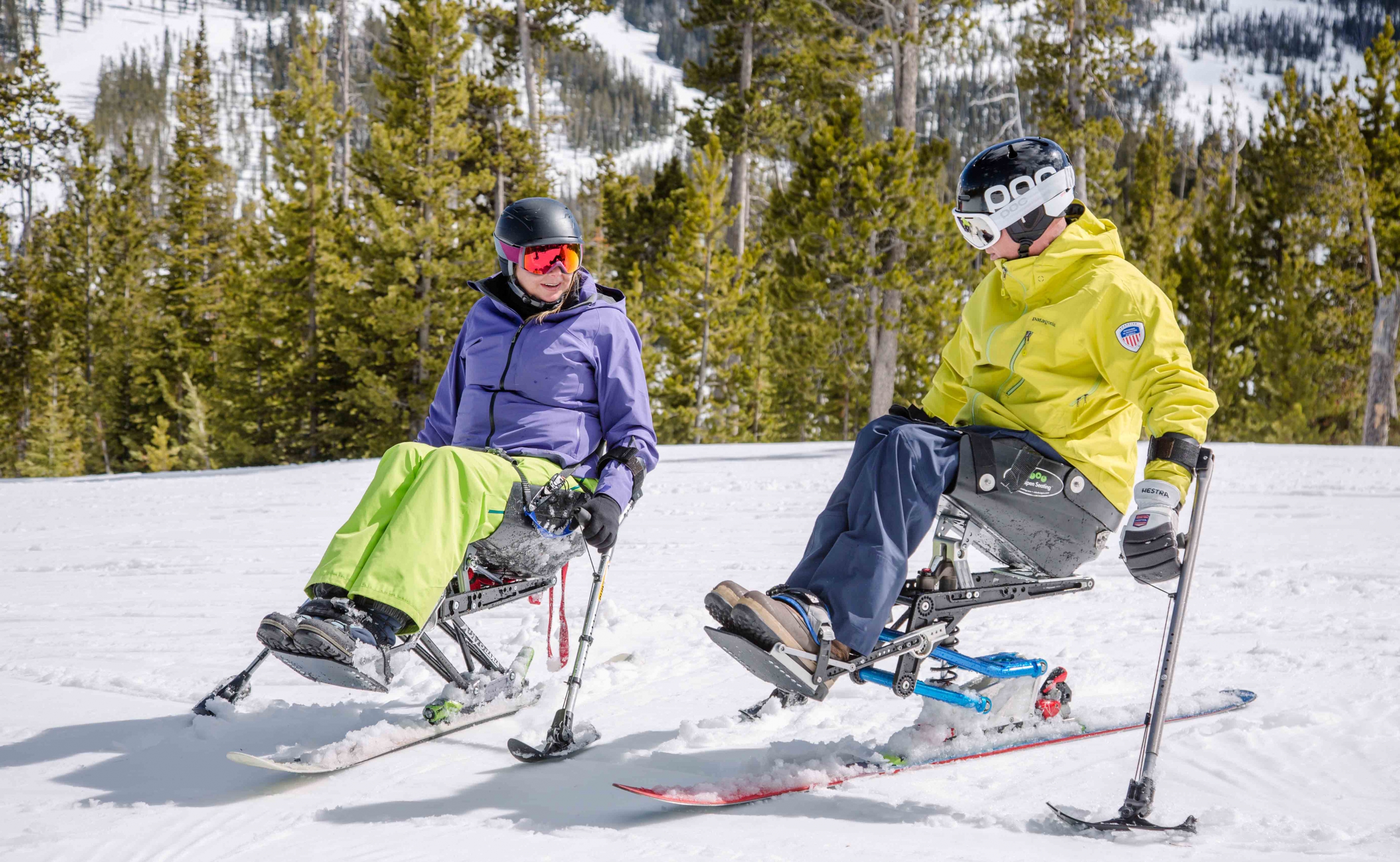Pro File: Katie Zinn
Meet Katie Zinn, Executive Director of Access Unbound.
Q: What do you like most about sliding on snow?
A: Skiing is an equalizer. You don’t have to be ridiculously athletic to enjoy it. As an asthmatic, it is one of the only sports I could do as a child without ending up with breathing issues. It was something that everyone else did that I could do too.
Q: What’s your personal snowsports instruction history?
A: One of my friends growing up was blind and, almost daily, I volunteered with the special education classes in high school. Working with special populations in our society is just a part of who I am. I got interested in adaptive snowsports my freshman year of college. I was at Sugarloaf in Maine and saw this cool jacket with the logo of a skier with a disability and the name of the program, now called Maine Adaptive Sports and Recreation. I looked up the program and saw it combined my passions – teaching, working with people with disabilities, and skiing.
I began volunteering and was hooked. I did that for several years before moving to Colorado to help a program that was transitioning to a nonprofit model. After several years there, I moved to Vail to be part of a professional adaptive winter program. I have been at Vail for the last eight years, where I teach in the adaptive program and serve as an instructor trainer.
I also serve as a trainer and examiner for Rocky Mountain Division, compiled the new Adaptive Alpine Technical Manual and its companion piece, the Adaptive Instruction Supplement: Diagnoses and Medication Classifications, and am working on a team tasked with designing national curriculum and assessment standards for adaptive certifications.
Q: What impact do you have on your students’ lives?
A: I don’t know that it is me who has the impact, but more the experience itself. For example, I taught one child who spoke only a handful of words but doubled his vocabulary over the course of three days of instruction. We will never know if it was the altitude, environment, activity, or some combination of these factors, but it worked. Adaptive snowsports instruction is an extraordinary vehicle for healing and for life-changing moments. I have seen it give people their lives back when they believed all was lost after an injury or illness. I have seen it transform lives. I am honored to be a part of that journey.
Q: What are the biggest trends you see in adaptive snowsports instruction?
A: We are getting back to our roots. Skiing is skiing, and snowboarding is snowboarding. We start with the same fundamentals, but what sets adaptive apart is that we build on those fundamentals and add specialized techniques (e.g., how the body moves when it is paralyzed below the diaphragm, how to teach a student who is nonverbal). PSIA-AASI Adaptive Team Coach Geoff Krill says alpine and snowboard instruction might be compared to becoming a doctor or general physician, whereas adaptive instruction is like starting with that general medicine degree, then adding credentials in specialty areas.
Q: What else do you do for fun?
A: A lot of my time is spent on a nonprofit I started called Access Unbound. We work to enable access to high-quality professional instruction for people with disabilities, or disabling conditions, who qualify for our partner adaptive programs. I also always find time go on adventures with my dog, Vivian. This winter, Vivian is enjoying the fact that I have been learning to cross country ski.
This article originally appeared in the Spring 2020 issue of 32 Degrees. Log in now to the online version to access other great content that will up your instructor game.







